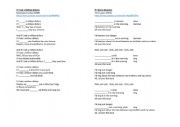
|
Conditional form in songs
3 songs which use the conditional:
If I had a million dollars
If I had a hammer
If I didn�t love you
Gap-fill activities increase in difficulty from song 1 to song 3.
Level: intermediate
Age: 11-100
Type:
Downloads: 15
|
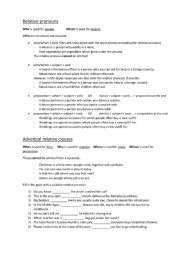
|
Relative pronouns overview
A worksheet with explanations, a written exercise and oral exercises.
The first part deals with the difference between who and which, and the different structures in which these pronouns can be used. There is then an oral exercise involving drawing a card from a hat and giving a definition of the word.
The second part deals with whose, where, why...
Level: intermediate
Age: 10-100
Type:
Downloads: 20
|
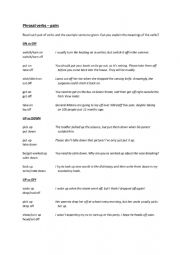
|
Phrasal verbs in pairs: off/on, up/down, up/off
Page 1 is an easier version of page 2 - choose the style that suits your class better. This is to introduce the verb pairs and get pupils to provide definitions.
Page 3 offers open-ended discussion questions and a gap-fill exercise.
Level: advanced
Age: 11-100
Type:
Downloads: 18
|
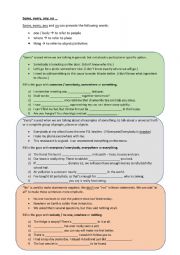
|
every- some- no- any- words overview and exercises
An overview of how the prefixes EVERY, SOME, NO and ANY combine with ONE/BODY, THING and WHERE.
Each prefix is discussed separately, with a guided gap-fill exercise each time.
The final exercise asks students to do a mixed gap-fill as a plenary/conclusion activity.
Level: intermediate
Age: 10-100
Type:
Downloads: 41
|
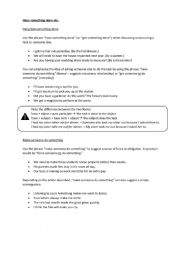
|
Causative form: have/get something done, make someone do something etc.
An overview of the following structures:
have/get something done - have someone do something - get someone to do something - make someone do something
There are clear explanations of the structures and the subtle differences in meaning between them, followed by two authentic texts and exercises (open-ended questions as well as grammar gap-fill se...
Level: advanced
Age: 11-100
Type: grammar-guide
Downloads: 29
|
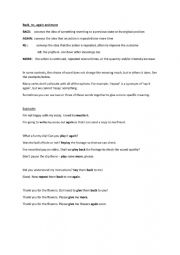
|
Easily confused words: back, again, re-, more
An overview of the subtle differences between back, again, re- and more. These are illustrated through examples and are to be practised with exercises. Answers provided on the last page.
Level: advanced
Age: 10-100
Type:
Downloads: 10
|
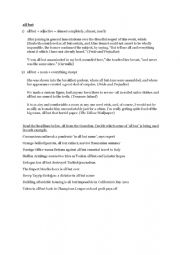
|
all but, anything but, everything but, nothing but
A guide for advanced learners explaining the often confusing structure "all but" as well as anything, everything and nothing but.
The sheet includes an explanation of each structure, then examples taken from real-life sources (newspapers and literature) for learners to analyse.
Level: advanced
Age: 13-100
Type:
Downloads: 9
|
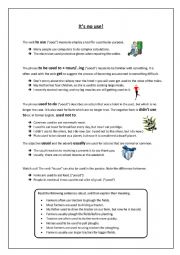
|
Easily confused words: use - used to do - be used to doing - usually
A clear explanation of the commonly confused phrases use, used to, be used to and usually.
Worksheet covers pronunciation, open-ended expression and sentence correction (choose the correct option).
Answers are on the final page.
Level: advanced
Age: 10-100
Type:
Downloads: 28
|
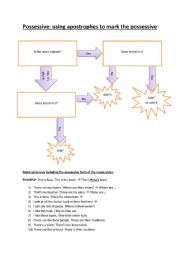
|
Possessive apostrophe
A clear flowchart explaining whether to add �s or � to indicate the possessive, followed by an exercise to practise this. Answers are on p2.
Level: intermediate
Age: 10-100
Type:
Downloads: 17
|
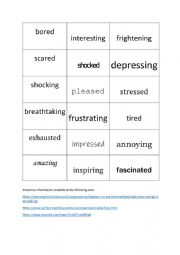
|
Participles used as adjectives: cards
A set of adjectives ending in -ed or -ing for students to use to create random sentences. Good plenary or warm-up activity.
Level: intermediate
Age: 8-100
Type:
Downloads: 10
|